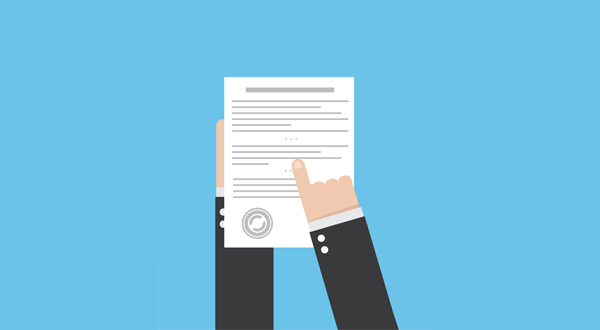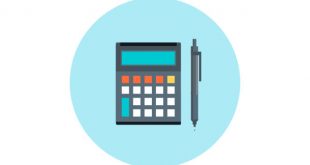
The coronavirus outbreak has impacted many aspects of business and social life. The Law No. 7244 annexed Provisional Article 10 to the Labor Law No. 4857 and banned the termination of employment during the epidemic. The prohibition of termination was introduced to restrict the employer’s layoffs. In order to support the workers and employers in these troubled days, the solution came up with the Omnibus Law No. 7244. The employer will be able to put their workers on unpaid leave with a unilateral decision instead of laying them off. This way, workers on unpaid leave will receive 39.24 TL per day from the government. What type of terminations do the prohibition of termination cover?
How will the Prohibition of Termination Work?
With the temporary law, the employer will not be able to terminate the employment contract at his own will. The employment contract will solely be terminated by the worker. In this process, there is no obstacle for the automatic termination of the employment contract.
The prohibition of termination is valid as of April 17, 2020, when the Law No. 7244 came into effect and covers 3 months during the epidemic. The period, however, can be extended by the power of the President up to 6 months. In violation of this prohibition, employers who terminate the employment contract between April 17 and July 17 will be subject to an administrative fine of minimum wage for each worker whose employment is terminated.
Which Terminations Can Be Done?
The ban covers all termination by the employer, with the exception of “Reasons that do not comply with morality and benevolence” indicated in the Article 25, article II of the Labor Law numbered 4857.
These reasons include:
“II- Cases that do not comply with the rules of ethics and goodwill and the like:
a) At the time of the employment contract, the worker misleads the employer by claiming that he/she has the necessary qualities or conditions for one of the essential points of this contract or by providing inaccurate information.
b) The worker speaks or acts dishonorably about the employer or one of their family members, or makes false and dignified false declarations about the employer.
c) The worker has sexually harassed another worker of the employer.
d) The worker arrives to workplace drunk or under the influence of drugs or illegal substances.
e) The worker acts in a manner that does not comply with accuracy and commitment, such as abuse of employer’s trust, stealing, and revealing the employer’s secrets.
f) The worker commits a crime in the workplace that has been sentenced to more than seven days in prison and the penalty cannot be delayed.
g) If the worker does not continue his work for two consecutive working days or three working days in a month, or two days in a month, without any permission from the employer for a justified reason.
h) If the worker insists on not performing the duties he/she is assigned to do even though reminded.
ı) The worker endangers the safety of the work due to his own will or rejection, causing damages and losses that the workplace cannot afford the machines, equipment or other goods and materials exceeding the cost of the worker’s thirty-day wage. ”
Fulfilling one of the reasons above is not sufficient to lay off a worker without notice and compensation according to the article 25 / II. There must be less than 1 year since the incident took place and the unit with the right to terminate must terminate the employment contract within 6 business days from the date of the incident. However, the 1 year rule is not taken into consideration when the worker gets financial benefits.
Is it Possible to Terminate Work During The Trial Period in The Ban Period?
In the trial period, which lasts maximum 2 months in the employment contract and maximum 4 months in the collective agreements, the termination can take place in two ways: Employee’s termination during the trial period or the employer’s dismissal.
The employer will not be able to fire a worker who was hired before or during the ban period, even in the trial period, while the ban is in progress. Instead, he will be able to put the worker on unpaid leave. However, the worker can terminate his contract during the trial period, if he wishes.
Can Terminations on Mutual Rescissions Allowed during the Ban Period?
Mutual Rescissions happen when both the worker and employer mutually agree to end the employment contract. Although it could not find a place in the articles regulating the termination in the Labor Law, the termination contract will be checked to determine who issued the termination will. The party offering the tender is deemed to have declared termination. As this is a grey area, mutual rescissions have high risk during the ban. Our humble recommendation for employers would be to postpone such termination till the ban period is over.
Can a Fixed Term Contract be Terminated During the Ban Period?
For fixed term employment contracts, the end date of the work is predetermined by the parties as the conclusion of the contract. When the expiration date comes, the contract ends automatically. If work continues after the due date, the contract must be renewed. The termination of the contract without renewal can be accepted as the termination of the employer. In fixed term contracts, termination is considered to have occurred automatically if the work expires at the end date of the contract. Since there is no employer termination, the ban is not violated.
Due to the nature of the work, fixed term contracts can be executed for work that starts and ends. There is no fixed term employment contract for any work that has continuity. The Labor Law did not grant the sole authority to decide on a fixed-term employment contract to the worker-employer. Therefore, the employee and employer cannot sign a fixed term contract with their consent for jobs that are not in accordance with the fixed term contract. We warn you that many fixed-term contracts in Turkey are not treated as fixed-term contracts but indefinite term contracts before the law.
All in all, termination of the fixed-term contract by the employer before its deadline will result in an administrative fine imposed on the employer under the prohibition.
Pre-Notified Employment Termination During the Ban Period
There is no explicit provision in the new law for the termination of the employment contracts that were notified prior April 17 and will be executed during the ban period. Under these circumstances, the safest way is to apply for unpaid leave during the ban period until a new regulation is announced with more clarifications.
What Happens if the Workplace Closes During The Ban Period?
With the omnibus law, no exemptions are given to the termination of the employment contract due to the closure of the workplace. Therefore, the employer’s termination of the employment contract due to the closure of the workplace will result in an administrative fine, during the ban period.
Can a Worker Resign during the Ban Period?
As the prohibition of termination applies to terminations by the employer, there is no obstacle for the worker to resign. However, despite the laws granting the employer unilateral unpaid leave in return for the prohibition of termination, if it is determined that employers force workers to resign, there could be other penalties imposed onto the employer.
Is It Possible to Retire During This Period?
It is possible for the workers who meet the retirement conditions or have completed the conditions other than the age to get their retirement by showing the reason with the letter they received from SGK. As termination due to retirement is counted between the situations when the worker leaves his job by putting his own will, such terminations will be possible during the ban period.
 Turkish Labor Law
Turkish Labor Law
